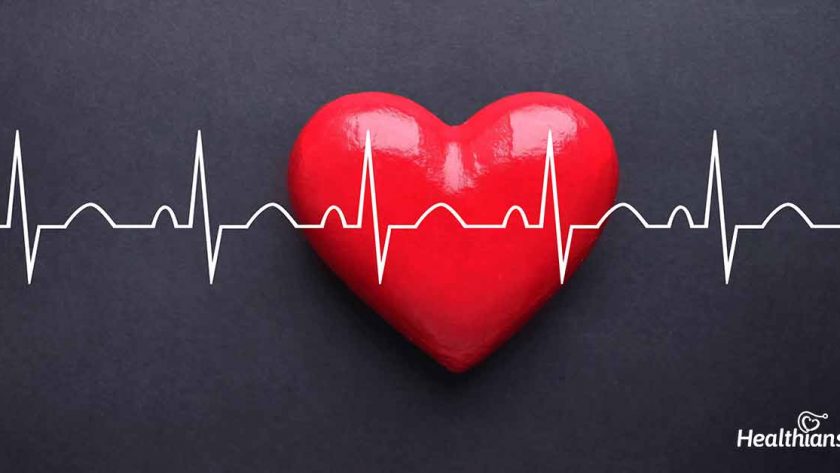[ad_1]
Contributed by: Abshar Faheem
What is supraventricular tachycardia?
If your heart rate suddenly or unexpectedly goes high without any episode of anxiety or when you are at rest, it might be a cause of concern. and should be consulted with the doctor immediately, as it can be an episode of supraventricular tachycardia (SVT).
The term contains Latin roots. Supraventricular means ‘above the ventricles’ which are the lower two sections of your heart. Tachycardia means ‘fast heart rate’. It is an umbrella term that covers arrhythmias, or abnormal heart rhythms, that occur from an electrical glitch or disrupt the upper chambers of the heart, including atrial flutter. This abnormal electrical signal intervenes with your heart’s natural pacemaker, also known as the sinoatrial node (SA node), causing a jump in the heart rate. A period of SVT may be unexpected and short-lived and some people who acquire this abnormally rapid heartbeat might not show any alarming signals.
For others, however, SVT can happen often and continue. People with SVT may also exhibit some alarming symptoms including palpitations, dizziness, chest pain, fatigue, shortness of breath, anxiety, sweating, and feeling faint.
Causes of supraventricular tachycardia?
SVT can happen to anyone regardless of age and gender and there’s no concrete cause for its onset. It can occur in your teens or early 20s. Sometimes you are born with abnormal electrical circuits in your heart. Damaged electrical circuits can also develop out of scar tissue neglected after surgery. Your heart rate is more likely to go faster if you drink too much alcohol and caffeine, smoke, are under a lot of stress or very tired, take certain antibiotics such as asthma drugs or herbal diet remedies, or consume illegal drugs, such as cocaine, ecstasy, etc.
Most of the people who get SVT particularly with rare episodes do not need any medication or procedures to control the condition. In some circumstances, you can just do certain lifestyle modifications that can assist you to get a heartbeat with a uniform and constant rhythm.
SVT is not a serious condition but managing sudden episodes can be cumbersome. To avoid such instances, replacing your lifestyle habits with healthy ones can help to stop the occurrence of rapid heartbeat. Here are some of the steps you can take to greatly reduce the risk of supraventricular tachycardia.
Avoid unhealthy habits
SVT can happen unexpectedly and without showing any warning signs, but there are plenty of triggers that can cause abnormally fast heart rhythm. Reduce your SVT risk by withdrawing alcohol and caffeine or drinking only in moderation. If you smoke regularly, discuss with your doctor about the safe and efficient ways to quit this nasty habit. It is also essential to inform your doctor regarding all the supplements and prescriptions that you take, including those labeled as ‘all-natural’ as they could have undesired side effects.
Maintain a healthy diet
Include fruits, vegetables, lean protein, whole grains, and a low amount of unsaturated fats in your diet because it has a protective impact on your heart. Give more emphasis to fruits and vegetables and try to limit sodium, saturated fat, and sugar in your diet. Discuss with your healthcare provider or doctor to decide the best diet plan for you.
Keep your weight in check
People suffering from heart diseases and especially those who have uncontrolled diabetes are more likely to experience arrhythmia. Keeping a healthy weight can help reduce the risk of both these medical conditions and decrease the chance of developing SVT. Dropping only 5 to 10 percent of excess weight may promote and boost your heart health and can have a concrete effect on your blood cholesterol levels, blood pressure, and other known heart risks,
Take adequate sleep
Being exhausted or fatigued raises the risk of developing SVT. Taking ample rest each night is essential for your heart health. Adults should try to sleep for seven to nine hours every night. They should establish a good hygiene sleep schedule. This can involve fixing and adhering to regular sleep and wake-up timings and avoiding caffeine and alcohol before bedtime.
Relieve stress
Stress can lead to SVT. It may be difficult to overcome stress, therefore, you should alter the way you cope with it and take certain steps to overcome your anxiety. Try some relaxation techniques or physical activities that can assist you to ease stress. But be assured that you get options that are not only pleasant but can also easily apply to your lifestyle and you can enjoy them daily, such as yoga, deep breathing exercises, or just long walks.
If you are feeling the symptoms of SVT, speak to your doctor about how you can stop and control recurring episodes, and develop the treatment program that is the most suitable for your health.
Take The Heart Preventive Test Today
This post has already been read 12 times!
[ad_2]
Source link




